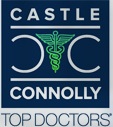
More than 50,000 shoulder replacement surgeries are performed in the United States each year.1 According to a recent study by Johns Hopkins University School of Medicine, the number of reverse shoulder replacements is increasing.2
Reverse total shoulder replacement is an advanced procedure that was specifically designed to treat patients who are not candidates for traditional shoulder replacement surgery due to rotator cuff tear arthropathy. Rotator cuff tear arthropathy is a condition in which both shoulder arthritis and a rotator cuff tear are present.
In a traditional shoulder replacement, the ball of the humerus is replaced with a metal ball and the glenoid cavity of the shoulder blade (scapula) is replaced with a plastic socket. The shoulder then operates as normal, relying on the support of the rotator cuff which produces the large range of motion we enjoy with our shoulder joint. However, if those muscles, tendons, and ligaments have suffered damage, like a rotator cuff tear, then even after a traditional replacement, the shoulder may not function properly and can continue to experience pain and limited motion.
Thankfully, with the option of reverse shoulder replacement, individuals who would not be a candidate for traditional shoulder replacement can experience relief from pain and a return of shoulder function.
The benefits of reverse shoulder replacement include:
- A Different Muscle - With reverse shoulder replacement, the new ball and socket placement are reversed. This reversal results in the shoulder relying on the large deltoid muscle rather than the rotator cuff for support and motion.
- Joint Stabilization – Rotator cuff tears and arthritis weaken the shoulder joint causing pain, loss of motion, and instability. With reverse shoulder replacement, the joint is strengthened and stabilized.
- Another Option – Reverse Shoulder replacement is a treatment option for those that would not benefit from traditional shoulder replacement. A reverse replacement may be indicated in those with rotator cuff tears and arthritis, traditional shoulder replacement failure, or consistent dislocations of the shoulder.
Reverse shoulder replacement is an advanced procedure and should be performed by an orthopedic surgeon that specializes in shoulder care.
If you are not a candidate for traditional shoulder replacement due to rotator cuff tear arthropathy or a previous shoulder replacement, then ask your doctor about the benefits of reverse shoulder replacement and whether it is a treatment option for you.
Dr. Ryan Colley attended medical school at MidwesternUniversity Arizona College of Osteopathic Medicine. He completed a residency inorthopedic surgery at Ohio University, studying all orthopedics fields, including trauma,joint replacement, sports medicine, pediatrics, and hand surgery. Dr. Colley focuses onall aspects of upper extremity joint replacement, reconstruction, trauma, and arthroscopy.He also performs robotic-assisted total knee replacement. Dr. Colley has authored severalpublications and book chapters. He takes a holistic approach to improve the quality oflife for his patients. In his free time, Dr. Colley enjoys time with his wife and two children. They love to hike, fish, snowboard, and travel.





 Book an Appointment
Book an Appointment
 Patient Portal
Patient Portal